TsHKT1;2, a HKT1 homolog from the extremophile Arabidopsis relative Thellungiella salsuginea, shows K(+) specificity in the presence of NaCl
- PMID: 22238420
- PMCID: PMC3291249
- DOI: 10.1104/pp.111.193110
TsHKT1;2, a HKT1 homolog from the extremophile Arabidopsis relative Thellungiella salsuginea, shows K(+) specificity in the presence of NaCl
Abstract
Cellular Na(+)/K(+) ratio is a crucial parameter determining plant salinity stress resistance. We tested the function of plasma membrane Na(+)/K(+) cotransporters in the High-affinity K(+) Transporter (HKT) family from the halophytic Arabidopsis (Arabidopsis thaliana) relative Thellungiella salsuginea. T. salsuginea contains at least two HKT genes. TsHKT1;1 is expressed at very low levels, while the abundant TsHKT1;2 is transcriptionally strongly up-regulated by salt stress. TsHKT-based RNA interference in T. salsuginea resulted in Na(+) sensitivity and K(+) deficiency. The athkt1 mutant lines overexpressing TsHKT1;2 proved less sensitive to Na(+) and showed less K(+) deficiency than lines overexpressing AtHKT1. TsHKT1;2 ectopically expressed in yeast mutants lacking Na(+) or K(+) transporters revealed strong K(+) transporter activity and selectivity for K(+) over Na(+). Altering two amino acid residues in TsHKT1;2 to mimic the AtHKT1 sequence resulted in enhanced sodium uptake and loss of the TsHKT1;2 intrinsic K(+) transporter activity. We consider the maintenance of K(+) uptake through TsHKT1;2 under salt stress an important component supporting the halophytic lifestyle of T. salsuginea.
Figures
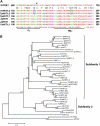

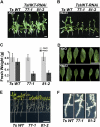
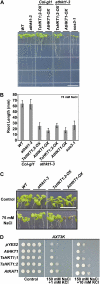
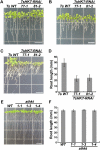
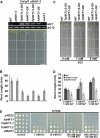

References
-
- Adams P, Nelson DE, Yamada S, Chmara W, Jensen RG, Bohnert HJ, Griffiths H. (1998) Growth and development of Mesembryanthemum crystallinum. New Phytol 138: 171–190 - PubMed
-
- Apse MP, Aharon GS, Snedden WA, Blumwald E. (1999) Salt tolerance conferred by overexpression of a vacuolar Na+/H+ antiport in Arabidopsis. Science 285: 1256–1258 - PubMed
Publication types
MeSH terms
Substances
Associated data
- Actions
LinkOut - more resources
Full Text Sources
Medical
Molecular Biology Databases

